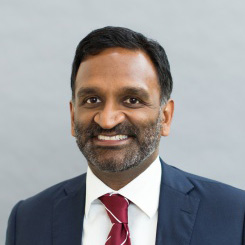At the time of his election in April 2005, Pope Benedict XVI was widely perceived to be a “conservative” in our modern political parlance. It should not surprise, then, that many commentators have expressed either shock or joy, depending on their own affiliations, with last Tuesday’s publication of his encyclical letter Caritas in Veritate (Charity in Truth), the first extended statement on social and economic issues of his pontificate.
Conservatives are dismayed by his calls for increased foreign aid, the redistribution of wealth, and a United Nations with “real teeth”. Liberals are wondering why the pope had to ruin such lovely sentiments by bringing up the evils of abortion, euthanasia, and birth control. Prominent voices on both sides think the pope is hopelessly naïve and unrealistic. Reading Charity in Truth for partisan purposes can yield moments of agony and ecstasy for left and right alike.
Neither side, however, seems ready to take Benedict’s theology – his own field of expertise – seriously. Part of this is a result of our habitual, liberal democratic tendency to separate Church and State and not let theological arguments influence our politics. This tendency invariably blinds us to the pope’s combination of respect for life with the demands of social justice.
Such a synthesis is not easy nor is it likely to satisfy partisans. It’s hard enough to imagine an international authority that can command universal support – not even the pope has that within his own Church. In many ways our current systems of democratic governance are more modest because they do not assume any such unanimity, theological or otherwise. But the real question is whether a society built solely on competing interests will ultimately be worth the trouble. Will it reflect Benedict’s insistent demands for human dignity? Experience keeps telling us something more is clearly needed.
Our political categories of left and right originate from the French Revolution, which infamously saw the Catholic Church as its great enemy. Which makes it all the more remarkable that the modern social teachings of the papacy may provide the soundest moral defense of liberté, égalité et fraternité in today’s world.
We often make utilitarian arguments in favor of freedom, especially in the area of economics. We support the market economy and the profit motive because they produce more goods and services and increase our standard of living. We criticize the same system when we see others or ourselves less well-off materially, such as in this time of crisis. The system is judged moral or immoral because of what it does for us.
This is not Benedict’s approach. Like his predecessors, he starts with a certain understanding of human nature. Human beings are free and equal in dignity because they are created in the image and likeness of God. And as children of God, they have a social nature that compels them to live and prosper together, despite their tendency to pride and selfishness. Human beings still have a “vocation” together. On this basis, Catholic social teaching developed a moral understanding of human freedom that rightly warns against utopian or overly idealistic schemes: the Church knows there is nothing more evident than human sin and weakness.
On past occasions, Benedict has avoided what he calls “cheap moralism” that takes no account of the technical side of economics and shows no willingness to integrate ethics into the everyday world of business – it remains on the outside looking in. Instead of partaking in simple, “prophetic” (in hindsight) calls against capitalism, Benedict has chosen to engage us with “an adult faith”, as he said on the eve of the encyclical’s publication.
Charity in Truth tells us that the Catholic faith creates “breathing-space” for human beings first of all by rescuing us from determinism and the denial of free will and action. The good of eternal life taught by the Catholicism is a “higher good” that liberates us from the relentless accumulation of wealth. And finally, the pope employs terms such as “integral human development” and the “common good” that promote a myriad of social activities outside state control; religious education, community organizations and even different forms of business are some examples. Allowing for “breathing-space” seems to be Benedict’s argument against central planning and control in social and political life. This “breathing-space” also allows for openness to God and recognition of our own interdependence. It’s the papal version of letting a thousand flowers bloom.
In the end, Benedict’s vision of charity working under the guidance of truth is one that transcends our partisan claims of justice. His vision is not an easy one to accept or implement, especially for those involved in the technical fields of finance and economics. But that’s just the point, isn’t it? We have come to an impasse. And the pope, pastor of a billion souls, is eager for us all to be a little better than we’ve been lately.

